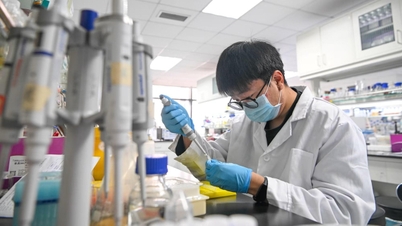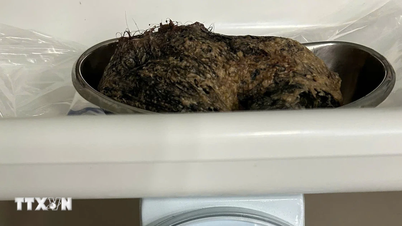Chinese surgeons have successfully performed the first gene-edited pig liver transplant on a living patient, marking a major medical breakthrough in efforts to address the shortage of donated organs.
According to the Journal of Hepatology, the surgery was performed by a team at the First Affiliated Hospital of Anhui Medical University, using a donated liver developed by scientists at Yunnan Agricultural University. The donated pig underwent rigorous pathogen screening and had 10 genes modified – three genes causing rapid rejection were removed, while seven human genes were added to improve immune compatibility and prevent blood clotting.
The surgery was performed on May 17, 2024, on a 71-year-old patient with a large, inoperable liver tumor. A pig liver was transplanted as an "adjuvant" organ, meaning it functions in parallel with the patient's natural liver.
For the first 31 days after surgery, the patient showed no signs of acute rejection, and the pig liver was functioning effectively. However, on the 38th day, the patient experienced microvascular coagulation in the transplanted liver, forcing the doctors to remove the transplanted portion. Subsequently, the patient suffered gastrointestinal bleeding and passed away on the 171st day after surgery.
Although the patient did not survive, experts assessed that the transplant demonstrated the feasibility of using genetically modified pig liver to support patients over the long term, opening up prospects for the development of xenotransplantation as a "bridge" therapy before finding a suitable human organ.
The review in the Journal of Hepatology notes that while this success is not yet ready for widespread application, it has established important clinical evidence that pig liver can function in the human body.
Source: https://www.vietnamplus.vn/trung-quoc-thanh-cong-ghep-gan-lon-chinh-sua-gene-dau-tien-tren-nguoi-song-post1071986.vnp







![[Photo] Prime Minister Pham Minh Chinh holds a phone call with the CEO of Russia's Rosatom Corporation.](/_next/image?url=https%3A%2F%2Fvphoto.vietnam.vn%2Fthumb%2F1200x675%2Fvietnam%2Fresource%2FIMAGE%2F2025%2F12%2F11%2F1765464552365_dsc-5295-jpg.webp&w=3840&q=75)




































































































Comment (0)